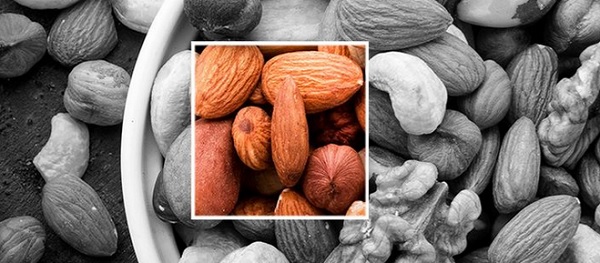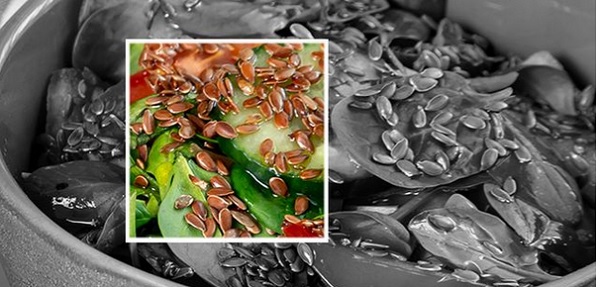Positive Health Online
Your Country

Ease Menopause Symptoms with Amino acids and Vitamin B5 – A dynamic Combination to Boost Cognitive Performance
by Dr Nisa Aslam and Suzie Sawyer(more info)
listed in nutraceuticals, originally published in issue 286 - May 2023
While the menopause is a natural stage of life, typically taking place between the ages of 45 and 55 and occurs due to a decline in the hormones oestrogen and progesterone, it doesn’t make it any more comfortable! One of the more common symptoms is brain fog, which affects a scary 60%[1] of women. Fluctuating hormones is a massive factor in cognitive decline, but essentially loss of oestrogen, other hormones and neurochemicals become imbalanced, especially those affecting stress, mood and memory, notably, serotonin.[2]
However, women are at a loss of what to do as discovered in a new research study[3] by Aminoscience, the evidence-backed next generation of food and botanical supplements including amino acids – life’s building blocks our bodies thrive on.
Green Leafy Vegetables
https://www.nhco-nutrition.co.uk/health-need/menopause-health
- 79% of women have not heard of tryptophan, the amino acid needed to produce serotonin and the sleep hormone melatonin.
- Only 13% of people surveyed thought that tryptophan was associated with memory
- 83% of women had never thought of amino acids in relation to the menopause.
However, all nutrients work synergistically in the body, and certain vitamins and minerals, often lacking in the UK diets, can also provide support for brain function during the menopause. Vitamin B5 (also known as pantothenic acid), is needed to synthesis brain neurotransmitters, to produce adrenal hormones to support stress and mood, help release energy from food and support the immune system.[4]
Protein from Nuts
https://www.nhco-nutrition.co.uk/health-need/menopause-health
It’s time to power up the brain with the right nutrients……GP, Dr Nisa Aslam and Clinical Nutritionist, Suzie Sawyer, share their five sharp tips.
- Bust stress: Stress can be a massive drain on optimal cognitive function. Raised levels of the stress hormone cortisol, are known to negatively affect memory and mood. However, by increasing levels of vitamin B5 from foods such as nutritional yeast, soy beans, liver, milk, fish and poultry, as well as whole grain and fruits and vegetables, balance can be restored. And here’s a recipe that will help too. https://www.bbc.co.uk/food/recipes/vegan_pasta_bake_67249
Interestingly, vitamin B5 is also needed to manufacture cholesterol, which is essential for producing steroid hormones such as oestrogen. Whilst it’s often maligned, cholesterol is essential too. - Kick menopause blues into touch: We know that many menopausal symptoms including low mood, depression and cognitive changes are down to oestrogen-related fluctuations in serotonin.[5] But how to feel brighter and more positive? In order to produce serotonin, the body needs the essential amino acid, tryptophan found in turkey, eggs, oats, soya, nuts and dairy produce. Tryptophan is essential, meaning the body can’t make it, therefore it needs to be taken in via the diet or supplementation. The good news is there are a good variety of tryptophan-rich foods to choose from to help blow away the blues.
- Empower nature to banish brain fog: Nature shows us love every day by providing powerful botanicals such as the herb passionflower to help with sleep.[6]. Lack of sleep is a major factor in poor cognitive function and taking the herb in supplement form and/or drinking as a tea can really help.
Equally the brain needs plenty of antioxidants found in nature, to protect it from free radical damage, responsible for the ageing process. Fruits and vegetables are especially rich in antioxidants, so load up your plate with colour. Even better, Vitamin B5, often referred to as the ‘anti-stress vitamin’ is rich in broccoli, cauliflower, oranges and strawberries. - Oil up the brain: The brain is very oily! In essence this means it’s made up of around 60% fat.[7 It naturally follows; therefore, it needs plenty of fat in the diet to keep the cogs turning smoothly. A large percentage of the fat is made up of the essential omega-3s. Just like the essential amino acids, these omegas have to be taken in via the diet in the form of oily fish or nuts and seeds. If these don’t feature highly in your diet, then supplementation is needed if you want to sharpen your brain function.
- Take a supplement to ease menopause misery: Hormonal fluctuations, the stresses and strains of life, together with potentially wider nutrient depletion as we head to mid-life, and menopausal symptoms can become a whole lot worse. Plus, essential amino acids, especially tryptophan can only be obtained via the diet or supplementation. Try New Aminoscience Menopause & Vitality, ideal for women in the perimenopause and menopause phases wanting nutritional essentials to support their brain health as well as energy and bone health. It contains tryptophan, another amino acid, alanine, Vitamin B5, the essential omegas, and plenty of nature’s amazing botanicals, including passionflower. Women swear by the supplement around the globe and it gets our recommendation.
Flaxseeds
https://www.nhco-nutrition.co.uk/health-need/menopause-health
Five Food Tips for a Sharp Brain
- Protein is key: Load up on protein from various sources to get those essential nine amino acids, including tryptophan. Great sources are from meat, fish, beans, nuts, dairy, whole grains and poultry.
- Start the day right: One of the best breakfasts contains eggs in some form. Not only are the yolks used to produce phosphatidyl choline, essential for the brain, they are rich in blood sugar balancing protein, which helps to keep concentration levels balanced.
- Think B5: Whilst some people turn up their nose at liver and kidneys they’re delicious if served in appropriate recipes, and are rich in vitamin B5.
- Learn to love fish: All sources of oily fish including salmon, sardines and mackerel are rich in brain-loving omega-3 fats.
- Or eat some seeds: If fish is not your bag, then great plant sources of omega-3 fats are flaxseeds (great sprinkled on porridge or cereal) and pumpkin seeds (a brilliant transportable snack).
See www.nhco-nutrition.co.uk for further information.
About NHCO Nutrition: NHCO Nutrition was established over 20 years ago by French pharmacist Charles Elkrief, who applied his extensive research in the field of amino acids to create a unique range of food supplements with a focus on amino acid formulations. From state-of-the-art research and development laboratories based in the Alpes-Maritime region, NHCO Nutrition has championed the science behind amino acids and their critical role in human health. www.nhco-nutrition.co.uk
Recognised as an innovative world leader when it comes to nutrition, NHCO Nutrition has been able to combine the clever, essential health role that amino acids play including the proper functioning of body cells, together with the very latest dietetic research to create a unique food supplement range – Aminoscience. The Aminoscience brand is based on utilising science-backed, quality formulations to create combinations of amino acid complexes that are perfectly matched to the physiological needs of the body.
Charles Elkrief, Founder of NHCO Nutrition, France says: “For five years I have intensively studied the effects and advantages of amino acids in dietary supplements and found that the specific combination of amino acids with micronutrients and plant extracts, provide formulations with superior effectiveness in the marketplace”.
All Aminoscience formulations are produced in Europe and comply with the very latest, robust, accredited, healthcare manufacturing processes as well as all food and food supplement regulations. Only the highest-grade raw materials are used, which assures safety and purity. All formulations and dosage levels are based on research, with traceability and origin of ingredients guaranteed.
NHCO Nutrition was acquired in 2018 by Chiesi Group, one of the top 50 healthcare companies in the world. Chiesi Farmaceutici S.p.A. is an international, research-based, wellbeing business, located in Parma, Italy. With over 80 years’ experience, Chiesi is dedicated to the research and development behind therapeutic prescription medicines in the field of respiratory, neonatology, transplant medicine and rare diseases.
The Company was founded in 1935 as a family business and now spans the globe, employing more than 6,000 people worldwide and selling its products in more than 80 countries.
Innovation is at the heart of the company’s continued success which is why Chiesi invests a staggering €378.3M in research and development. Health ‘firsts’ from Chiesi include a host of next generation wellness innovations including stem cell technologies and new healthcare solutions for serious genetic diseases.
References
- https://www.webmd.com/menopause/news/20161012/more-evidence-menopause-brain-fog-is-real
- Jenkins TA et al. (2016). Influence of tryptophan and serotonin on mood and cognition with a possible role of the gut-brain axis. Nutrients, 8(1), 56.
- Perspectus Global; 1000 adults surveyed; Summer 2022
- https://pubmed.ncbi.nlm.nih.gov/31691401/
- Epperson CN (2021) Interactive effects of estrogen and serotonin on brain activation during working memory and affective processing in menopausal women. Psychoneuroendocrinology, 37(3), 372-382
- Jeewon Lee et al. Effects of passionflower incarnate Linnaeus on polysomnographic sleep parameters in subjects with insomnia disorder: a double-blind randomised placebo-controlled study.
- https://pubmed.ncbi.nlm.nih.gov/20329590/
Comments:
-
No Article Comments available


